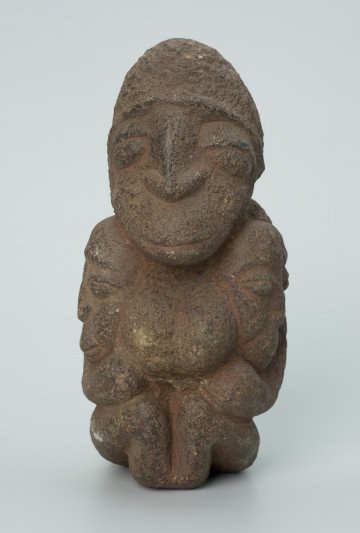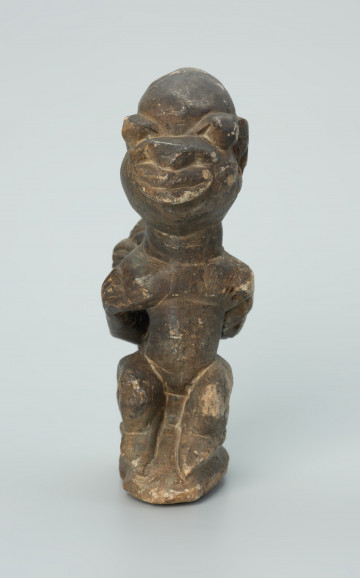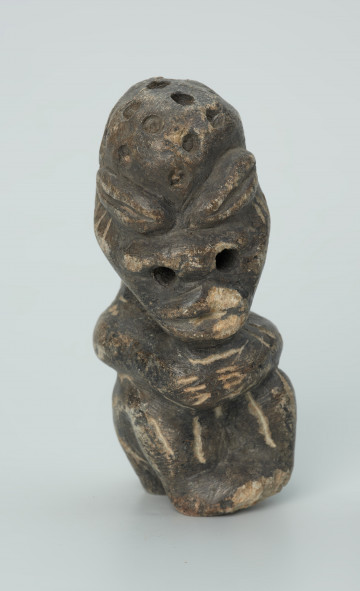
Figure of cult of dead
1901 — 1973
National Museum in Szczecin
Part of the collection: Stone figurines from West Africa
Carved in soapstone, the cult of the dead statue pomdo depicts a human bust with a lizard whose paws encompass the head and shoulders of a human figure. Among African stone sculptures in the collection of the National Museum in Szczecin, the most numerous are soapstone specimens from Guinea, Sierra Leone and Liberia. Most of them depict human figures. Sculptures found in Sierra Leone, called in the Mende language nomolisia (singular nomoli), usually have large, round heads set on massive necks, bulging eyes, clearly marked nostrils and full, open mouths with bared teeth. Statues from Guinea and Liberia, called in the Kissi language pomda or pomta (singular pomdo), depict figures in a sitting position with their legs contracted. Up to half of the sculpture is the head with a face with thick, expressive features, convex eyes and a broad and flat nose. The origin of the nomolisia and pomda sculptures is not clear. One theory is that they were made by Kissi's ancestors, the Kirim and Bullom, ethnic groups that inhabited areas of Liberia, Guinea, and Sierra Leone in the past. The purpose of their creation and dating is also unclear. Modern inhabitants of Liberia, Guinea and Sierra Leone find nomolisia and pomda figurines in the ground and water channels during agricultural work and when searching for diamonds.
Katarzyna Findlik-Gawron
Author / creator
Dimensions
cały obiekt: height: 23,7 cm, width: 10,8 cm
Object type
figure
Creation time / dating
Creation / finding place
Identification number
Location / status

1901 — 1973
National Museum in Szczecin

1901 — 1971
National Museum in Szczecin

1901 — 1971
National Museum in Szczecin
DISCOVER this TOPIC
National Museum in Lublin
DISCOVER this PATH
Educational path